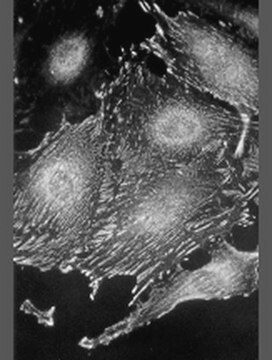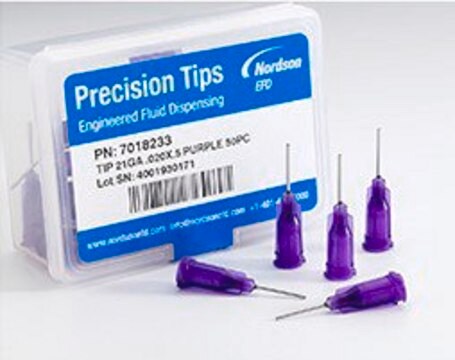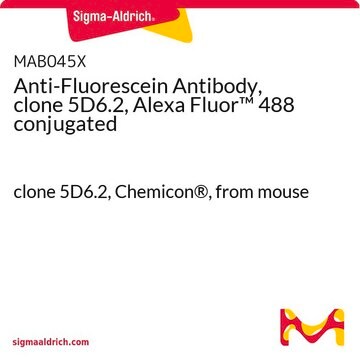11333089001
Roche
Anti-Digoxigenin
from sheep
Synonym(s):
anti-digoxigenin, digoxigenin
Select a Size
Select a Size
About This Item
Recommended Products
biological source
sheep
Quality Level
conjugate
unconjugated
antibody form
purified immunoglobulin
antibody product type
primary antibodies
clone
polyclonal
form
lyophilized
packaging
pkg of 200 μg
manufacturer/tradename
Roche
isotype
IgG
General description
Specificity
Application
- ELISA
- Immunohistocytochemistry
- In situ hybridization
- Western blot
Biochem/physiol Actions
Preparation Note
- ELISA: for coating: 2 to 4 μg/ml
- Immunohistocytochemistry: 0.5 to 2 μg/ml
- In situ hybridization: 0.2 to 0.4 μg/ml
- Western blot: 0.5 to 2 μg/ml
Working solution: For coating applications: PBS (phosphate buffered saline), pH 7.4
Reconstitution
Analysis Note
Other Notes
Not finding the right product?
Try our Product Selector Tool.
signalword
Warning
hcodes
Hazard Classifications
Skin Sens. 1
Storage Class
11 - Combustible Solids
wgk_germany
WGK 3
flash_point_f
does not flash
flash_point_c
does not flash
Choose from one of the most recent versions:
Already Own This Product?
Find documentation for the products that you have recently purchased in the Document Library.
Customers Also Viewed
Articles
Digoxigenin (DIG) labeling methods and kits for DNA and RNA DIG probes, random primed DNA labeling, nick translation labeling, 5’ and 3’ oligonucleotide end-labeling.
Our team of scientists has experience in all areas of research including Life Science, Material Science, Chemical Synthesis, Chromatography, Analytical and many others.
Contact Technical Service







